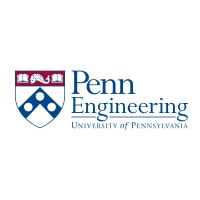Explore the science and engineering behind biotechnology in this hands-on program. Students will learn molecular biology fundamentals, conduct molecular cloning experiments, and work with Penn PhD mentors on a group research proposal. Discover how engineers use genetic technology to create life-saving drugs and innovations.
*]:pointer-events-auto [content-visibility:auto] supports-[content-visibility:auto]:[contain-intrinsic-size:auto_100lvh] scroll-mt-[calc(var(--header-height)+min(200px,max(70px,20svh)))]" tabindex="-1" dir="auto" data-turn-id="4b2b52b2-a9b4-4766-9294-11522b648a77" data-testid="conversation-turn-40" data-scroll-anchor="true" data-turn="assistant">
Biotechnology has transformed modern medicine and research through the power of genetic engineering—a field where scientists and engineers design new proteins, develop drugs, and uncover the mechanisms of disease. In this immersive program, students will explore the fundamentals of molecular biology while gaining hands-on experience conducting molecular cloning experiments in the lab.
Participants will learn how engineers harness living systems—such as bacteria, yeast, and mammalian cells—to produce vital biomedical products, including insulin and cancer therapeutics. The course highlights the relationship between pure science (chemistry and biology) and applied science (chemical and biological engineering), helping students understand how discoveries move from lab to life-saving applications.
Students will collaborate on a group research proposal addressing a current problem in biotechnology, guided by a Penn Engineering PhD mentor, and will take part in a journal club to discuss cutting-edge research with Penn faculty.
Applicants should have completed at least one year of Biology and Chemistry; AP Biology is beneficial but not required.
The program fee covers all tuition, room/ board, meals, course materials, and program-related trips. Please note this does not include travel costs to or from the program.


 Recently Updated
Recently Updated